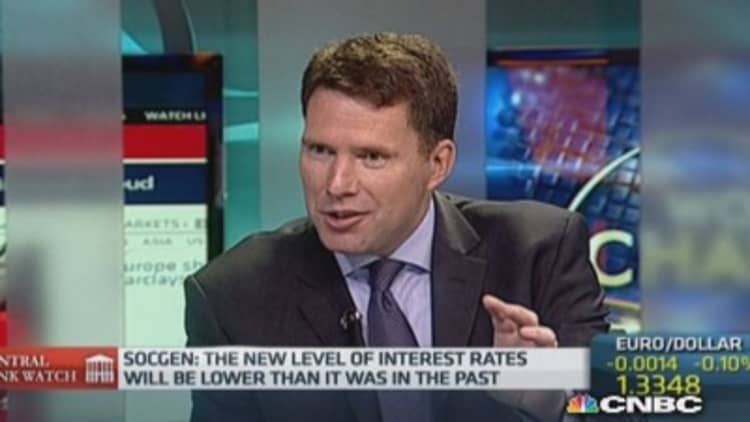The contest for the final remaining top EU job has become a two-person race between the leaders of Poland and Denmark, pitting a center-right man supported by newer member states in the east against a center-left woman backed by many of Europe's fiscally prudent north.
The narrowing of a six-person field for European Council president to Donald Tusk, the Polish premier who many say is now the frontrunner, and Helle Thorning-Schmidt, the multilingual Dane who was initially championed by Berlin and London, came during a series of phone calls between leaders ahead of a summit on Saturday.
Officials directly involved in the negotiations said both candidates face obstacles. Mr Tusk is not fluent in either French or English, prompting many to fear he would not be able to form the needed consensus among the EU's 28 leaders in contentious debates, the Council president's primary role.
Read MoreFull scope of Europe's bank stress tests revealed
However, he has the strong backing of central and eastern European capitals that feel they deserve one of the top jobs after being shut out since the EU expanded to the former Communist east in 2004.
Ms Thorning-Schmidt, who is fluent in both English and French and would be the first woman to hold either of the EU's presidencies, was an early favorite of David Cameron, UK prime minister, and Angela Merkel, the German chancellor.
But she has seen her candidacy suffer from the growing consensus that another center-left woman, Italian foreign minister Federica Mogherini, will become the EU's new foreign policy chief. The chance of the EU's social democrats securing both jobs to be decided on Saturday remains slim.

Ms Merkel last month voiced support for a Tusk candidacy and is urging the prime minister to put his name forward. Mr Cameron, who had fallen out with Mr Tusk over EU labour migration and objected to his candidacy at a summit last month, this week signalled his readiness to support the Pole.
Mr Tusk's appointment would send a strong signal to Moscow as Poland has been one of the strongest advocates of sanctions against Russia over its involvement in the Ukraine crisis. A Polish president of the council would also act as a counterweight to Ms Mogherini, who is seen as softer on Russia.
Senior officials said problems with both candidacies could still open the door for a compromise candidate, perhaps former Finnish prime minister Jyrki Katainen, a center-right politician whose country borders Russia, making him more sensitive to the fears of many in the east that the EU is not taking a tough enough stance against the Kremlin.
More from the FT:
European equities feel summertime blues
European grocers – shop carefully
EBA reveals templates for bank stress tests
Polish officials said Mr Tusk had expressed reservations about being a public face of the EU because of his rudimentary English, although he has been taking lessons over the past year. Over the last week, however, they say he has come under increased pressure – particularly from Germany – to accept the role.
Mr Tusk has spearheaded attempts to forge a pan-European energy policy in gas and electricity networks, partly as a means to reduce dependence on imports from Russia. But he is also viewed with suspicion by environmentalists as he is a vocal proponent of using the EU's domestic coal reserves.
Despite Mr Tusk's original reticence, there are growing signs in Poland that he could be preparing to leave.
Read MoreEU leaders fail to reach deal on top jobs
Mr Tusk made a speech to parliament on Wednesday outlining his party's priorities for the coming year. Unlike in previous years, he asked all of his ministers to make separate statements.
The ministers were informed of this format the evening before, according to a person with knowledge of the decision, in a move seen as Mr Tusk's attempt to present the strength and depth of his government before an election next year, in which his party is trailing.
"From what I know of his closest circle, they have worked towards this possibility for months," said Pawel Swieboda, president of demosEUROPA, a think-tank.

